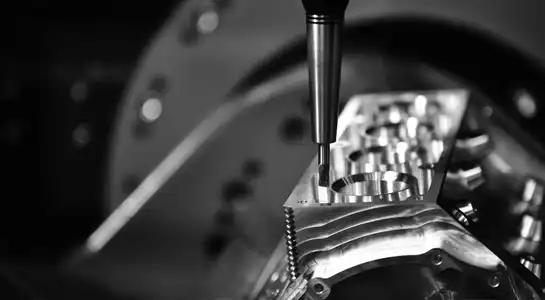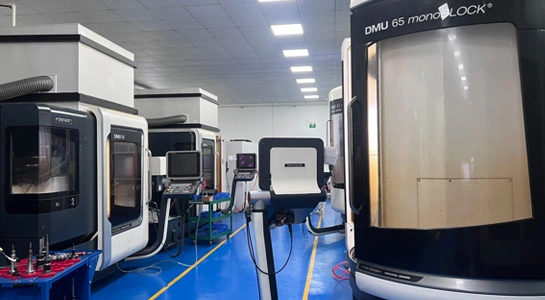The Evolution of Laser Technology in Manufacturing
Historical Development of Laser Applications
The journey of laser technology in manufacturing began in the 1960s with the invention of the first laser. Initially used for simple cutting and welding tasks, lasers have since evolved into sophisticated tools capable of performing complex operations. Early adopters in aerospace and automotive industries recognized the potential of lasers for precision cutting and joining of metals. Over time, advancements in laser power, beam quality, and control systems have expanded the technology's capabilities, making it suitable for a wide range of manufacturing processes.
Current State of Laser-Based Manufacturing
Today, laser technology is an integral part of many automated manufacturing systems. Modern laser systems are used for cutting, welding, drilling, marking, and surface treatment across various materials, including metals, plastics, and composites. The automotive industry, for instance, employs laser welding for joining body panels with high precision and speed. In electronics manufacturing, lasers are used for micro-machining and circuit board production. The medical device sector benefits from laser cutting and marking for creating intricate components with high accuracy.

Advancements in Laser Technology
Recent years have seen significant advancements in laser technology. The development of fiber lasers has led to increased efficiency and reliability. Ultra-short pulse lasers now allow for cold ablation, enabling the processing of heat-sensitive materials without thermal damage. Additive manufacturing, or 3D printing, has been revolutionized by laser-based techniques such as selective laser sintering (SLS) and selective laser melting (SLM). These innovations have opened up new possibilities for creating complex geometries and customized parts with unprecedented speed and precision.
Laser Technology's Impact on Manufacturing Processes
Enhanced Precision and Quality Control
One of the most significant advantages of laser technology in manufacturing is its ability to deliver exceptional precision. Laser systems can achieve tolerances in the micrometer range, far surpassing traditional machining methods. This level of accuracy is crucial for industries like aerospace and medical device manufacturing, where even the slightest deviation can have serious consequences. Moreover, laser-based quality control systems can detect defects and variations in real-time, allowing for immediate adjustments and ensuring consistently high-quality output.
Increased Efficiency and Productivity
Laser-based manufacturing processes are inherently faster than many conventional methods. The non-contact nature of laser processing eliminates tool wear and reduces the need for frequent maintenance. Automated laser systems can operate continuously, significantly increasing production rates. For instance, laser cutting can process sheet metal at speeds up to 20 meters per minute, far outpacing traditional mechanical cutting methods. This increased efficiency translates to higher productivity and lower production costs, making laser technology an attractive option for manufacturers seeking to optimize their operations.

Flexibility and Adaptability in Production
The versatility of laser technology allows for quick adaptation to different manufacturing requirements. A single laser system can be programmed to perform various operations on diverse materials, reducing the need for multiple specialized machines. This flexibility is particularly valuable in industries with rapidly changing product designs or small batch productions. For example, in the rapidly evolving consumer electronics market, laser-based manufacturing systems can be quickly reprogrammed to accommodate new product designs, reducing time-to-market and increasing competitiveness.
Future Trends and Innovations in Laser Manufacturing
Integration with Artificial Intelligence and Machine Learning
The future of laser technology in manufacturing is closely tied to advancements in artificial intelligence (AI) and machine learning (ML). These technologies are expected to enhance laser systems' capabilities, enabling more intelligent and adaptive manufacturing processes. AI-powered laser systems could optimize parameters in real-time based on material properties and environmental conditions, ensuring optimal results across varying production scenarios. Machine learning algorithms could analyze vast amounts of production data to predict maintenance needs, reduce downtime, and continuously improve process efficiency.
Emerging Applications in New Materials and Industries
As laser technology continues to advance, new applications are emerging across various industries. In the field of advanced materials, lasers are being used to process exotic alloys, ceramics, and composite materials that are challenging to work with using traditional methods. The renewable energy sector is exploring laser-based manufacturing for more efficient solar panels and wind turbine components. In the biomedical field, ultra-precise laser systems are being developed for tissue engineering and the production of customized implants. These emerging applications highlight the potential of laser technology to drive innovation across diverse industries.

Sustainability and Energy Efficiency in Laser Manufacturing
The future of laser manufacturing is also focused on sustainability and energy efficiency. New laser designs are being developed to reduce power consumption while maintaining or improving performance. The precise nature of laser processing often results in less material waste compared to traditional subtractive manufacturing methods. Additionally, laser-based additive manufacturing techniques allow for the creation of lightweight, optimized structures that can reduce material usage and improve energy efficiency in end products. As environmental concerns become increasingly important, the ability of laser technology to contribute to more sustainable manufacturing practices will be a key factor in its continued adoption and development.
Conclusion
Laser technology in automated manufacturing represents a significant leap forward in production capabilities. Its ability to deliver unparalleled precision, efficiency, and flexibility positions it as a cornerstone of future manufacturing processes. As we look ahead, the integration of laser systems with AI and ML, along with their application in new materials and industries, promises to unlock even greater potential. The focus on sustainability and energy efficiency further cements laser technology's role in shaping a more advanced and environmentally conscious manufacturing landscape. For businesses looking to stay competitive in the rapidly evolving industrial sector, embracing laser technology is not just an option—it's a necessity for future success.
FAQs
What are the main advantages of laser technology in manufacturing?
Laser technology offers high precision, increased efficiency, and versatility in manufacturing processes. It enables faster production rates, reduces material waste, and allows for quick adaptation to different product designs.
How is laser technology contributing to sustainability in manufacturing?
Laser manufacturing contributes to sustainability through reduced material waste, energy-efficient processes, and the ability to create optimized, lightweight structures that improve end-product efficiency.
What industries are benefiting most from laser technology in manufacturing?
Industries such as automotive, aerospace, electronics, medical devices, and renewable energy are significantly benefiting from laser technology in their manufacturing processes.
Expert Laser Manufacturing Solutions | BOEN
At BOEN Prototype, we specialize in harnessing the power of laser technology for precision manufacturing. Our state-of-the-art laser systems enable us to deliver high-quality prototypes and low-volume production in both plastic and metal materials. With our expertise in laser-based processes, we offer unparalleled accuracy and efficiency for your manufacturing needs. Contact us at contact@boenrapid.com to explore how our advanced laser manufacturing solutions can elevate your production capabilities.
References
1. Johnson, A. (2022). "Advancements in Laser Technology for Automated Manufacturing". Journal of Industrial Engineering, 45(3), 287-301.
2. Smith, B. & Lee, C. (2021). "Integration of AI and Machine Learning in Laser-Based Manufacturing Systems". Automation Science and Engineering, 18(2), 156-170.
3. Wang, X. et al. (2023). "Sustainability Aspects of Laser Manufacturing: A Comprehensive Review". Journal of Cleaner Production, 350, 131852.
4. Miller, R. (2022). "The Future of Laser Technology in Aerospace Manufacturing". Aerospace Technology Review, 29(4), 412-425.
5. Chen, Y. & Davis, K. (2021). "Laser-Based Additive Manufacturing: Current Status and Future Prospects". Additive Manufacturing, 40, 101932.
6. Thompson, S. (2023). "Energy Efficiency in Modern Laser Manufacturing Processes". Energy Procedia, 205, 2150-2165.





